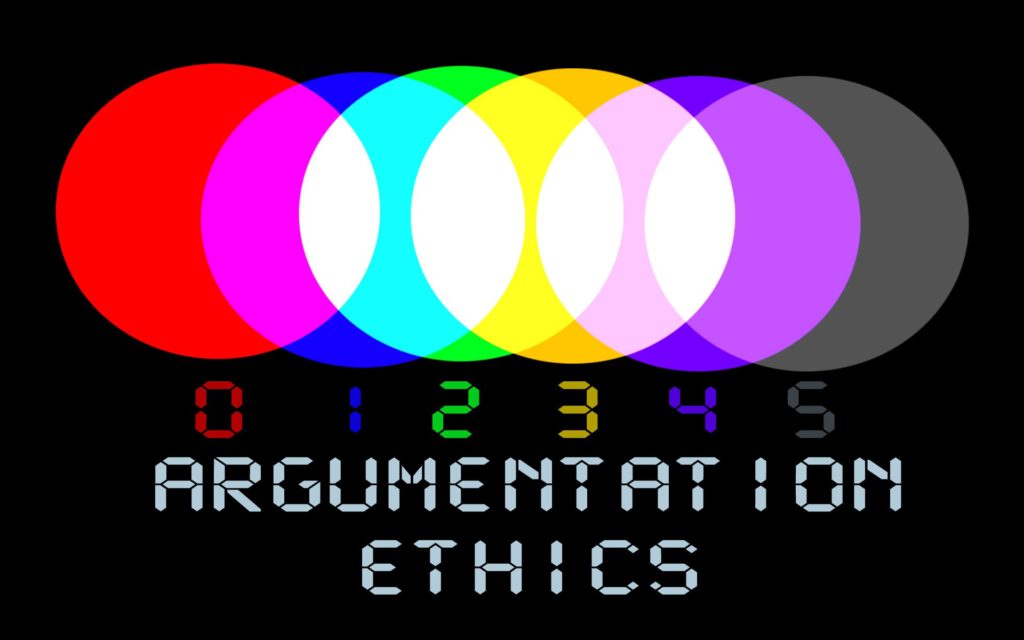Today I was caught up in more work and language study than what I thought I would have been in, so I cannot write a whole post today. I did not want to miss a day of posting, however, so I decided to point readers to Argumentation Ethics and where to find materials about it.
Argumentation Ethics is an ethical framework based upon the “a priori of communication and argumentation” often called the a priori of argumentation. Hans-Hermann Hoppe gives the definition of the a priori of argumentation:
This axiom is significant because those who deny it run immediately into a performative contradiction. This axiom cannot be coherently denied.
Following from this axiom is that if one engages in argumentation, then one also implicitly accepts a justifiably valid the presuppositions of argumentation. Hoppe explains that the presuppositions of argumentation lead one to realize that self-ownership cannot be justifiably denied, and that one cannot justify any argument that supports the use of aggressive violence. Additionally, he goes on to show that only homesteading and voluntary exchange are justifiable methods to obtain external scarce resources.
The implication of this can obviously be seen. All ethics but the Libertarian Ethic, i.e. Private Property Ethic, are not coherent and are not justifiable in argumentation, the social arena of validity.
This description is only the very tip of the Argumentation Ethics iceberg. If you are interested in reading about it, then I suggest you read what Kinsella suggests first:
I suggest reading at least the following, in this order: (1) chapters 1 and 2 ofTSC (esp. pp. 5–6 & 8–18, discussing notions of scarcity, aggression, property, norms, and justification); (2) chapter 9 of TSC, “The Ethical Justification of Capitalism and Why Socialism Is Morally Indefensible” (esp. pp. 130–145); (3) “Four Critical Replies”; and (4) my survey article “New Rationalist Directions in Libertarian Rights Theory.”
Afterwards read this concise guide to Argumentation Ethics by Kinsella followed by all the essays he links at the bottom.


Be First to Comment